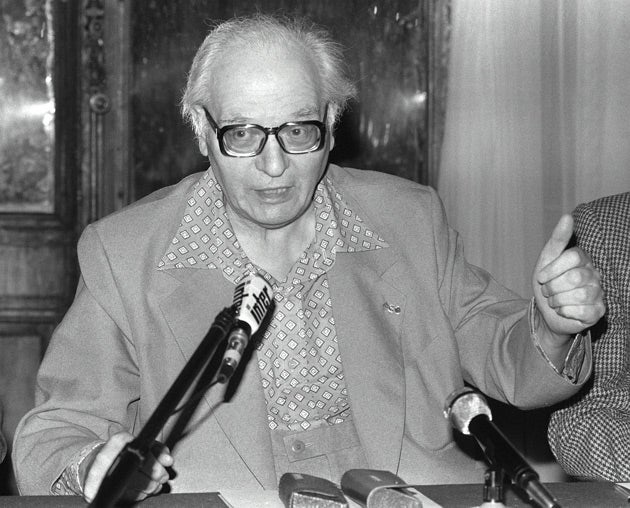Ensemble Intercontemporain/Boulez, Royal Festival Hall, London

This culminating concert of the Southbank's synoptic Olivier Messiaen festival, on the very day of his centenary, should have felt like a celebration.
Instead, it proved something of a trial, and not only aurally. To programme three scores in succession, dominated by hard-edged percussion and clangorous piano, was bound to weary the ear – especially as the last and longest item was not by Messiaen but by his star pupil, and conductor of the concert, Pierre Boulez.
Scored for three pianos, harps and percussionists, Sur incises (1996-8) is a monstrous 40-minute blow-up of a briefer piano piece – teeming with notes, yet grey in harmony and bereft of true invention.The work's unfolding is admittedly spectacular, and the nine Ensemble Intercontemporain players and now 83-year-old composer-conductor duly won themselves an ovation.
The Messiaen pieces were both written for Boulez in the 1960s. In Couleurs de la cité céleste, birdsong figuration is juxtaposed with solemn gongs and tam-tams and plainchant-based chorales for woodwind and brass, to produce, Messiaen hoped, an aural equivalent of stained glass. The effect is more encaustic tiles, but did introduce an impressive pianist in Sébastien Vichard.
Composed after a visit to Japan, 7 Hai-Kai (1962) at least brought to the evening the relief of string tone – though the eight violins Messiaen asks for are mainly restricted to sustaining high note-clusters, so once again, wind and piano dominate – the latter bringing on Pierre-Laurent Aimard, to remind us, perhaps, that the Messiaen festival he masterminded has revealed a far more varied master than one might imagine from this final concert.
Join our commenting forum
Join thought-provoking conversations, follow other Independent readers and see their replies
Comments
Bookmark popover
Removed from bookmarks